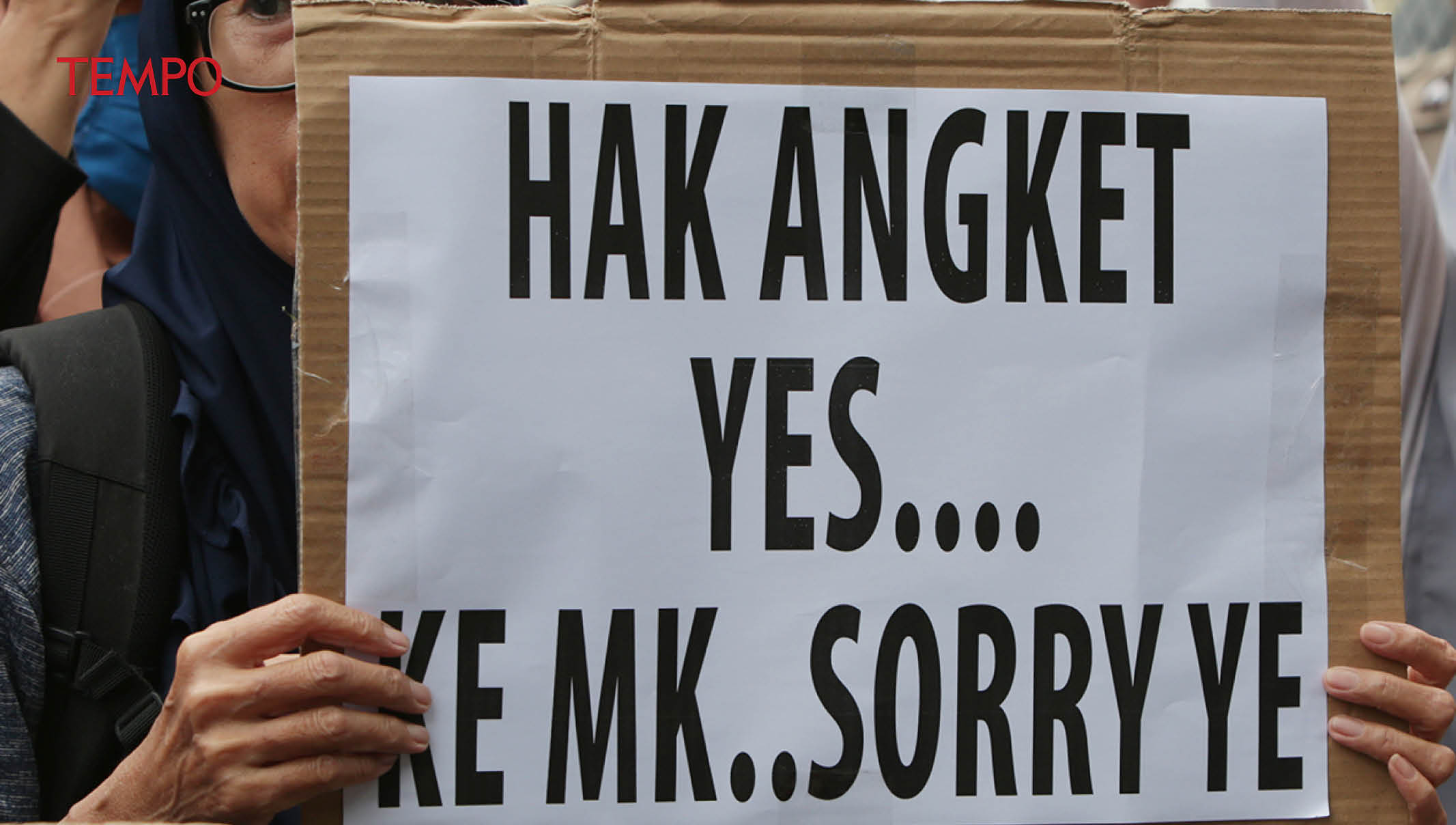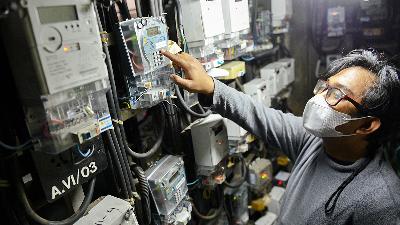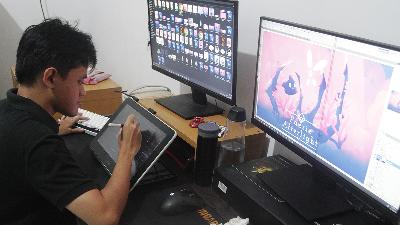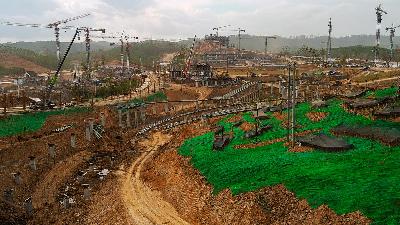The Importance of the Right of Inquiry
Monday, March 11, 2024
Jokowi is taking Indonesia right back to the start of the Reformasi era. The right of inquiry could be a way to save democracy.
arsip tempo : 174684391431.

PARTIES supporting the Anies Baswedan-Muhaimin Iskandar and Ganjar Pranowo-Mahfud Md. presidential and vice-presidential candidate pairings should not slacken in their efforts to push for the use of the House of Representatives’ (DPR) right of inquiry. This right is important to investigate the alleged fraud in the February 14 presidential and legislative elections, which has become a public talking point.
The five parties supporting these two candidate pairings are the National Democrat (NasDem) Party, the National Awakening Party (PKB), the Justice and Prosperity Party (PKS), the Indonesian Democratic Party of Struggle (PDI-P) and the United Development Party (PPP). With 314 seats in the DPR, they can block any moves by the coalition supporting presidential candidate Prabowo Subianto, comprising the Gerindra Party, the Golkar Party, the Democrat Party and a number of other small parties, which have 261 seats.
Intimidation from the government, as told by a number of politicians supporting the right of inquiry, must not cause them to lose heart. Perhaps these politicians have done things that could be questioned legally. However, it is important to remember that the government of President Joko Widodo and its officials have done a far greater wrong, namely betraying the Constitution during the nomination process of Prabowo Subianto and Gibran Rakabuming Raka.
Using the right of inquiry is an opportunity to expose this wrongdoing. President Jokowi, as the head of the government, must take full responsibility for any fraud in the 2024 elections.
The fight must go ahead, ignoring tempting offers of important positions. Sacrificing the public interest simply for one or two cabinet seats would be amoral. Joining Prabowo’s coalition might bring short-term political advantages, but as newcomers, parties that were rivals to Prabowo would not receive much because of their weak bargaining positions.
Some people only realized that President Jokowi was damaging our democracy when his son, Gibran Rakabuming Raka, became a vice-presidential candidate after the Constitutional Court tinkered with the General Election Law. But Jokowi began turning back the tide of reform after he agreed to the weakening of the fight against corruption through the revisions to the Corruption Eradication Commission Law in 2019.
Indonesia could be saved from the destruction of its democracy if the forces opposed to it do not allow themselves to be persuaded or give into pressure. The presence of an opposition—although this is not recognized in our political system—is important to prevent the government abusing its power. In the DPR, this job falls to the political parties, especially those outside the government.
It is not an easy job. A government that is allergic to differences of opinion could use every conceivable method to prevent its opponents from gaining a significant number of seats in the legislature. Parties outside the government or that have different opinions are put under all kinds of pressure. In the last five years, we have seen the parties simply parroting the opinions of the government, and rubber-stamping policies.
Outside the DPR, we do not have figures like Anwar Ibrahim in Malaysia, who persevered in opposition before winning a general election. However, our history of the 1998 Reformasi movement showed us figures like Abdurrahman Wahid, who together with other public figures, did not give in to persuasion from Suharto. After a quarter of century, indeed politics has changed. This change included the appearance of politicians who went into politics simply to obtain power in order to fill their stomachs and pockets. For them, politics is simply a question of “who can get what, how much, by any means.”
Therefore, efforts to establish a grand coalition of parties supporting the new government must be opposed. The proposal for this grand coalition was put forward by third rate political commentators and politicians, with a justification that economic development would be smoother without disruption from the opposition. They pretend to forget that a government without opposition is a government without controls. Another possibility is that they want to enrich themselves through corruption backed by the state, known as state capture corruption, without any disturbances.
A signal of the weakening of democracy was given by Prabowo Subianto, the presidential candidate who will probably win the election. In a discussion forum, he said that democracy is tiring, disorderly and expensive. We have no choice but to fight back.











